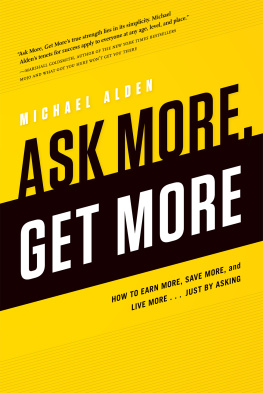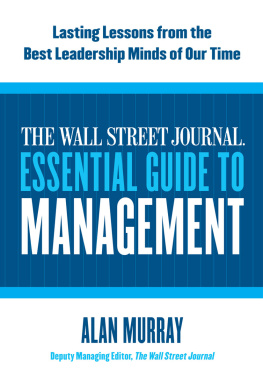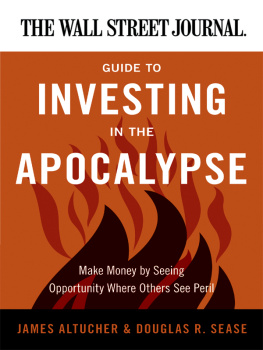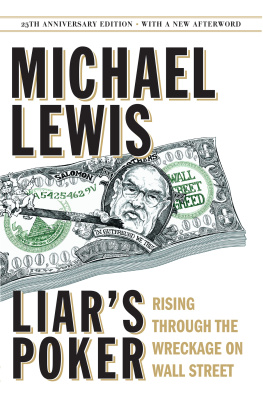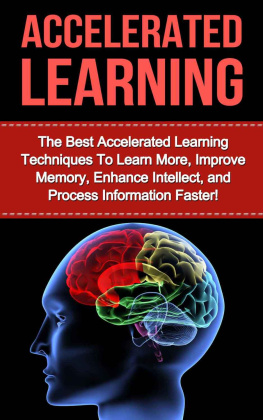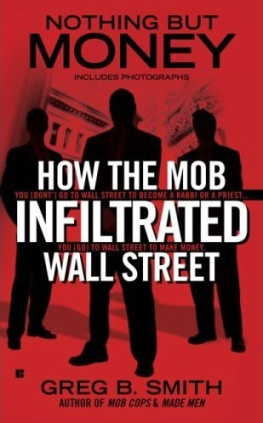Praise for Ask More, Get More
Michael Alden recounts his poverty-laden upbringing His struggling single mother jostled for food stamps and begged to keep her son and herself from eviction Aldens story motivates and educates. Whether youre rich or poor, content or striving, Ask More, Get More has golden nuggets of information sprinkled from cover to cover a must read!
John Abdo, Olympic Strength & Conditioning Coach, 1976, 1980, 1984, and 1988 Olympic Games, Master Fitness Trainer, National Fitness Hall of Fame Inductee
Ask More, Get More teaches anyone from any background not only how to make money, save money, and create wealth, but how to be successful in any aspect of life.
Jim Shriner, best-selling author of Live Disease Free to 103

Published by Emerald Book Company
Austin, TX
www.emeraldbookcompany.com
Copyright 2014 Michael Sciucco
All rights reserved.
No part of this book may be reproduced, stored in a retrieval system, or transmitted by any means, electronic, mechanical, photocopying, recording, or otherwise, without written permission from the copyright holder.
Distributed by Emerald Book Company
For ordering information or special discounts for bulk purchases, please contact
Emerald Book Company at PO Box 91869, Austin, TX 78709, 512.891.6100.
Design and composition by Greenleaf Book Group LLC
Cover design by Greenleaf Book Group LLC
Cataloging-in-Publication data
Alden, Michael, 1975
Ask more, get more : how to earn more, save more, and live morejust by asking / Michael Alden.1st ed.
p. ; cm.
Issued also as an ebook.
ISBN: 978-1-937110-60-4
1. Self-realization. 2. Success-Psychological aspects. 3. Negotiation. I. Title.
| BF637.S4 A43 2014 |
| 158.1 | 2013949507 |
ISBN 13: 978-1-937110-60-4
| Part of the Tree Neutral program, which offsets the number of trees consumed in the production and printing of this book by taking proactive steps, such as planting trees in direct proportion to the number of trees used: www.treeneutral.com |  |
Printed in the United States of America on acid-free paper
13 14 15 16 17 18 10 9 8 7 6 5 4 3 2 1
First Edition
To the most important person
in my life,
my little girl, Morgan.
Daddy loves you!
CONTENTS
Acknowledgments
Thank you to my friends and my family for their continued encouragement. I would not be who I am today without their support. I also thank my dedicated and talented editor Chris Benguhe, without whose support this book would not be what it is today.
INTRODUCTION
Thank God, I was born poor. I would not have wanted it any other way. Growing up poor was actually a gift; a gift that is very difficult to see when you are growing up. After all, how can living in constant fear of being homeless, having your electricity shut off, and eating from food pantry shelves be considered a gift? How can standing in the special free food lunch line or going to school early to get state-sponsored breakfast for twelve years be a gift? How can growing up in a neighborhood that was surrounded by crime, violence, and drugs be a gift?
Growing up poor taught me the value of money and hard work. Growing up poor taught me how to save, share, and be generous. Growing up poor caused me to yearn for more. The way I grew up may have been tough, but there are many worse situations than mine. I was never homeless, but often had the fear of being evicted. I never went hungry, but we had to improvise, adapt, and find ways to eat. I never had a Christmas without gifts or a special treat, but many of our holidays were subsidized by a charitable organization or completely funded by the Salvation Army. As a young child, I watched my mother struggle and cry trying to figure out how to get by. I used to listen to my mother negotiate and beg the Housing Authority not to evict us. I remember once when my mothers old, beat-up Dodge Colt was repossessed and she had to negotiate more money than it was worth to get the car back. You get the picture: I was poornot the poorest of poor, but certainly below the poverty level and poor enough to qualify for government-subsidized housing, food stamps, and state cheese.
Growing up poor forced me to learn how to use what I had within me to make more out of life. And as far back as I can remember, I have always worked.
Growing up in New England, we always expected a few snowstorms in the winter and blistering hot days in the summer. I was so excited when it snowed and school was cancelled. Even at age nine, I got up early, grabbed my shovel, and walked door-to-door to shovel driveways in what I thought were the rich neighborhoods. Depending on the day and the amount of snow, I partnered with a friend and wed either split up or do the driveways together to cover more houses. I literally worked from 7:00 a.m. to 7:00 p.m. or even later. And on a good snow day, Id come home with one hundred dollars in my pocket! When other kids were building snowmen, I was out hustling driveways. If I grew up middle class or rich, would I have done the same thing?
During the summers, I set up a lemonade stand on a busy street that was close to my house and solicited people driving by. Sometimes I got lucky, and a jogger or walker passed by. They almost always bought a cup of lemonade. One summer I franchised my business and we had three stands surrounding the neighborhood close to my house. We took turns riding our bikes back and forth to replenish the lemonade, and I learned the important concept that the direct, concerted effort of many is much more powerful than that of just one person.
At the age of ten, I dreamed of owning a cool BMX bike with all the accessorieschrome rims, cool brakes, and flashy colors. But these types of bikesGT, Redline, or Harocost a minimum of $300. I saw kids in my neighborhood riding around on these kinds of bikes, knowing full well that they stole them. If I wanted to keep my integrity, for me they were unattainable.
My uncle, Buddy, worked as a janitor at a Pontiac dealership in Danvers, Massachusetts, and every week or so he brought me giant bags full of aluminum soda cans worth five cents a piece. All I had to do was bring them to the redemption center and get the money. I forget what a big bag was worth, but it was probably around five or ten dollars. I think my mom gave me the idea to save that money for the bike I wanted. I thought it was a great idea, and not only did I save, but then I went out and found more cans. I picked cans out of barrels; I asked family members to save cans; I went on hunting excursions and then I discovered that a two-liter soda bottle was worth ten cents! Ten cents! That was awesome, and I hunted for them on a daily basis to get pocket change to buy things like candy or baseball cards. Over time I was able to buy that bike. I was so proud; it wasnt stolen, and it wasnt a gift. I bought it with the help of Uncle Buddy. It had magnum green fluorescent wheels and all of the chrome accessories a bike could handle. And that bike, well it also made me a lot of money, as you shall read.
When I was ten, I got a paper route and kept it through middle school, picking up new customers every week. The paper route was a tough responsibility. It had to be done every day and the papers had to be delivered before 4:00 p.m. My customers expected to see the unwet paper on their doorstep when they came home from work. When school ended at 2:00 in the afternoon, I rushed home and got on my BMX bike to deliver my papers. I was just beginning to get involved in sports and had to be very disciplined with my time so I didnt miss practice for football, baseball, or basketball. Finally, I would get home and do my homework (sometimes). The paper route wasnt a super profitable venture, but I made a decent amount of money; I cleared about fifty dollars a week, which was not bad for a kid living in the projects. I learned to appreciate the value of hard work and the almighty dollar. Many times my mom needed to borrow my money, and I remember being a bit annoyed since I had worked so hard. Looking back, I can barely comprehend how my mother managed and am glad I was able to contribute.

